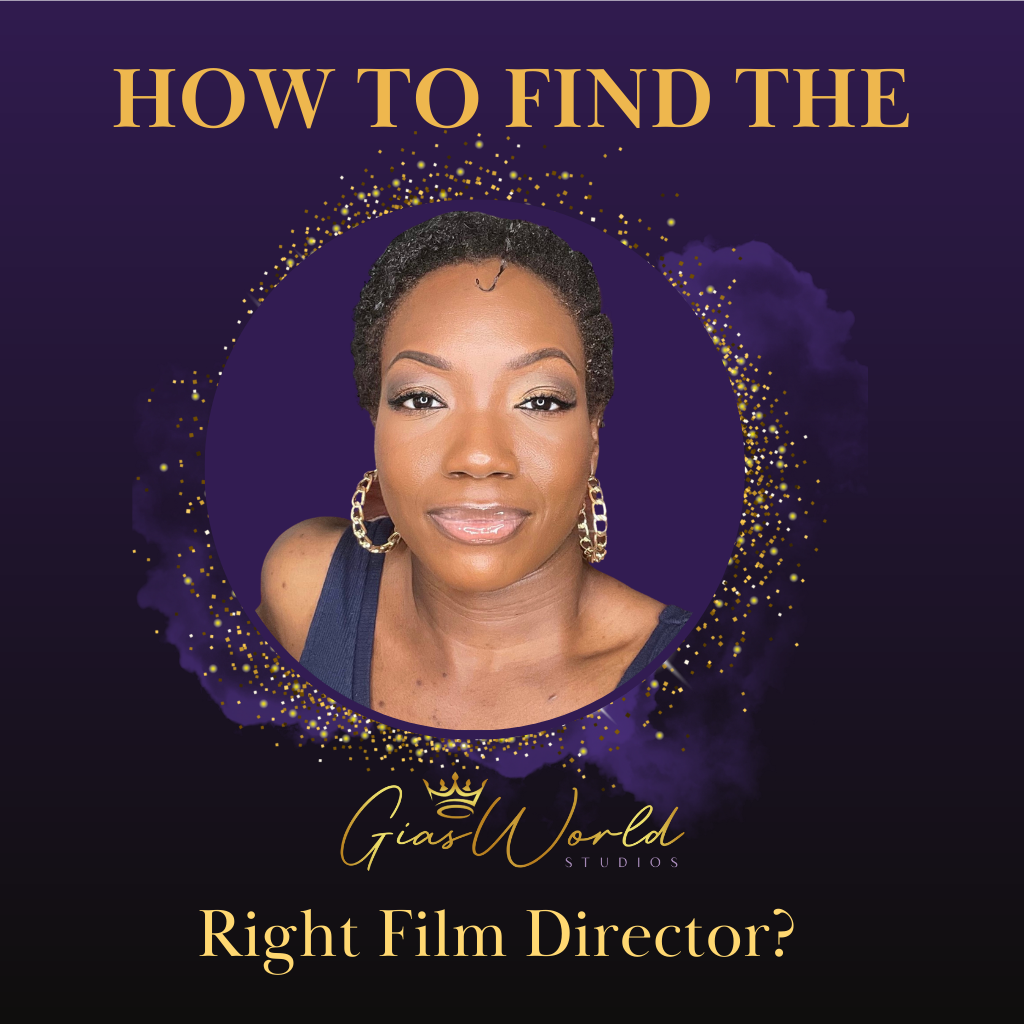How To Find The Right Film Director?


The right director will have humility no matter what career stage the filmmaker, producer, or screenwriter is in. The right director will listen to the filmmaker’s vision and their concerns. A great director is always eager to help. A great director is a great leader. – Gia Foretia
The success of any independent film production starts with the director. A filmmaker must have a director who is dedicated to the film’s story and familiar with the process of producing a quality film. I thought I’d found that in my original director and his assistant cameraman (AC).
I’d worked with both of them on my very first film gig and I saw how hardworking, dedicated, and knowledgeable they both were. So, naturally, it was a no-brainer to bring them onto my project. But as things progressed, I began to realize that they weren’t a good fit after all.
So, what happened?
I didn’t set “clear boundaries” in the beginning. Now remember, this is the first film (my film) that I’m producing. So of course, I don’t know what I’m doing. But things were moving so fast. They were so eager to get the trailer complete and out there into the world. So, they must’ve had my film’s best interest at heart. Right?
Well, the truth is, the film community is very tight knit. You really have to prove yourself and your dedication to the craft. If people haven’t worked with you in the past – it’s really just business.
Besides, you’re new. So, real acceptance is going to take time.
How to choose a director for a movie?
Ideally, you want to choose a director who of course has a good resume, but most importantly hears, understands, and is willing to bring your vision to life. A good director listens to your concerns, makes necessary adjustments and doesn’t take any opportunity for granted.
Don’t just assume someone is a good director just based off their resume alone. I’ve hired multiple film personnel based on their resume and most have ended horribly. I was talked down to, ghosted for months, received poor completion of work and some even refused to return back my film’s footage. I mean, I’ve been through the ringer.
So, choose a director that is experienced but also humble. It’s very easy to lose that feeling of humility as one gains success and footing in the film industry. But remember, you’re still the customer. And you, the customer deserve to feel satisfied with the end product that you took the time to create.
Now, back to the story….
Mistake # 1 – The first director offered to create the film’s IMDB page, and I agreed. It didn’t quite make sense to me at the time. I mean, the movie poster wasn’t completely finished, and we were trying to produce a trailer, not the actual film. But he insisted. So, uhm, okay. I guess. And by him having full control of the IMDB page he was adding roles and making updates I did not approve of.
In the end, when we all agreed that it was best to part ways he refused to take the page down. He expressed that I would have to figure it out myself. (Seriously?). Luckily, I had the copyright to the poster image, so IMDB was able to take the image down immediately.
My ideas, opinions and concerns were no longer being taken into consideration. It was as if they thought it was their project and their vision they were working to bring to life. Let me be clear, they did put in some heavy work, but I no longer felt like we were a team. Yes, I was the producer, meaning I would be taking the bulk of the load, but the way they were pushing to make things happen so quickly I felt like a 200-pound truck was sitting on my back.
Most of the time, when I would ask for help on trying to accomplish a great idea they would bring to the table, I was blown off. When I had a film question about trying to understand some camera specs so I could make sure I ordered the right equipment I was blown off again.
When I got fed up and finally said that clear boundaries were going to be set moving forward, they both decided to leave the project. I instantly agreed.
It felt like a huge weight was lifted off my shoulders.
How do you determine the best director?
The best director pays attention to the smallest details about your script. But your script needs to be well-written. In times of pressure, the best director knows that nothing matters except the film and getting the scheduled footage. The best directors are patient and confident – never arrogant or cocky.
The best director mostly has answers to problems / concerns. The best director makes you feel safe when you hand them your script (baby) to take care of. The best directors do make and suggest changes, but deep down you know those changes will be best for the film.
I’m not going to lie. The very next day, when it really sunk in that they were officially gone, I was scared shitless! I was really going to have to start at square one again! Then, another thought hit me. I had a community full of veteran filmmakers who I could turn to at any moment to answer any question that I had. (The Power of Networking).
Luckily, I had also put up a director’s bulletin on the Virginia Film Office Hotline a month or so earlier and remembered I had an inbox full of submissions to look through. I was going to be extra strict this time around. As I was going through the submissions only 2 caught my interest.
The first interview was with a talented director who placed and won in multiple competitions such as Cannes and the London Shorts Film Festival. When I interviewed her, it was like a breath of fresh air. I asked if she was comfortable with taking on a “dark” film. When she said, “yes” I sent her my film’s synopsis after our interview.
Two days later I was disappointed when I received an email back from her saying, “unfortunately my story was a bit too dark” for her to take on.
Mistake # 2 – I didn’t send the film’s synopsis to the interviewee before the interview to see if they were first comfortable with potentially taking on the project.
How much does a film director cost?
It depends on the project. If your production is only a couple of days, 1-2 locations etc. (mini trailer) then I’ve seen directors charge daily rates as low as $300/day. If you need a director for an entire production (i.e, more than 4 locations), I would say no less than a couple thousand dollars. I’ve seen as low as $3K for a short film production.
Now, $3K is a lot of money. But once you consider their time during pre, pro, and post-production, travel, accommodations, and needing money to take care of themselves, $3K doesn’t seem bad at all for a short film production.
Have a plan. Make a budget. Stick to that budget as best as you can.
At this point, I wanted to cancel the next interview because the second prospect had almost the same resume as the previous. However, after talking it over with a few mentors I was encouraged to still move forward with the next interview to respect their time.
Two days before the interview I send the potential director the film’s synopsis and waited for her response. I was in complete shock when she responded with her deep compassion and sincere connection with the story as she also passed through similar traumatic events in her own life. Whew!
After a 48-minute interview and a lot of serious thought, I decided to bring her on board as the director.
Main Lesson: Make sure to bring on key members who can relate to your story and make your film project even better.
Who should be a film director?
A person who’s dedicated to telling, writing, and creating great stories. Someone who cares about producing a great final product no matter how long it takes. A great director is not in it for quick fame as they know with time as they continue to produce great films, their fame will eventually come.
Here’s a great video to watch and implement if you’d like to become a director:
Other posts you may be interested in:
- Why A Film Treatment Is Important?
- What Happens As A Producer During A Film Production?
- What To Do When Your Film Shoot Fails?
Disclaimer:
The author is not liable for any losses or damages related to actions of failure to act related to the content in this article. If you need specific legal advice, consult with an attorney who specializes in your subject matter and jurisdiction.
Related
Tags
Related Posts
How Second Chances Can Lead To Film Success?
Read how I bounced back from film failure to create a product that would lead…



How Second Chances Can Lead To Film Success - Gia's Crazy Life | 21st Oct 22
[…] How To Find The Right Film Director? […]